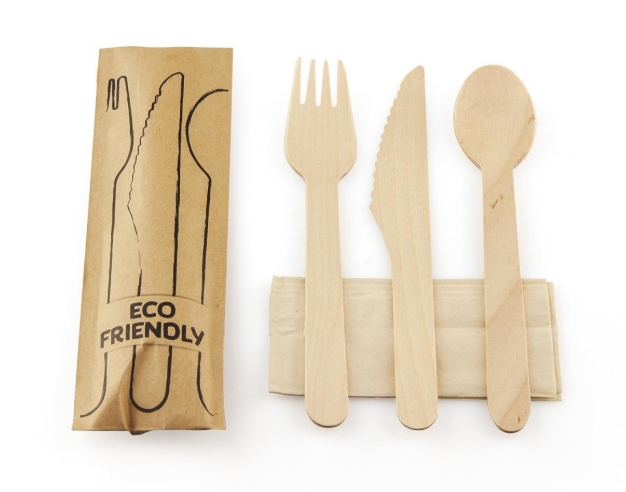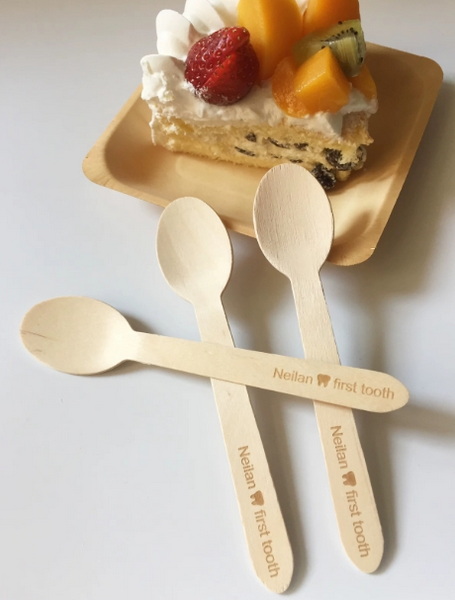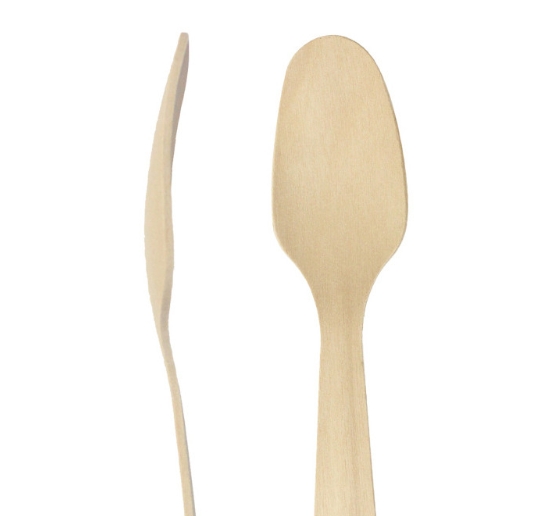
Content Menu
● The Rise of Wooden Spoon Disposable Products
● What Makes Wooden Disposable Spoons Durable?
>> Type of Wood Used
>> Manufacturing Process
>> Heat Resistance
>> Strength and Sturdiness
● Everyday Scenarios: How Do Wooden Disposable Spoons Perform?
>> Daily Meals
>> Outdoor Events and Picnics
>> Hot and Cold Foods
>> Foodservice and Catering
● Factors Affecting the Durability of Wooden Spoon Disposable Products
>> Moisture and Humidity
>> Food Acidity and Oils
>> Storage Conditions
● Comparing Wooden Spoon Disposable Products to Other Utensils
● Environmental Impact and Sustainability
● Practical Tips for Using Wooden Spoon Disposable Utensils
● Common Myths About Wooden Spoon Disposable Utensils
>> Myth 1: Wooden spoons break easily.
>> Myth 2: Wooden spoons alter the taste of food.
>> Myth 3: Wooden spoons are only for cold foods.
● The Future of Wooden Spoon Disposable Products
● Innovations in Wooden Spoon Disposable Products
● User Experiences and Feedback
● Cost Considerations
● Conclusion
● FAQ
>> 1. Are wooden disposable spoons strong enough for dense foods?
>> 2. Can wooden disposable spoons be used with hot foods and drinks?
>> 3. Do wooden disposable spoons splinter during use?
>> 4. How should I dispose of wooden disposable spoons after use?
>> 5. Are wooden disposable spoons safe for children?
Wooden spoon disposable products have become a staple in eco-friendly dining, offering a sustainable alternative to traditional plastic utensils. As consumers seek greener options for daily meals, picnics, and events, questions naturally arise about the durability and practicality of these wooden alternatives. This comprehensive guide explores the everyday resilience of wooden disposable spoons, their performance across various settings, and their environmental impact, helping you decide if they truly fit your lifestyle.

The Rise of Wooden Spoon Disposable Products
The shift from plastic to wooden spoon disposable utensils is driven by growing environmental awareness. Wooden disposable spoons are made from renewable resources such as birch, bamboo, and other hardwoods, making them biodegradable and compostable. Unlike plastic, which can persist in landfills for centuries, wooden spoons naturally break down over time, reducing environmental harm.
What Makes Wooden Disposable Spoons Durable?
Type of Wood Used
The durability of a wooden spoon disposable product hinges largely on its material. Hardwoods like birch and bamboo are favored for their tight grain and strength. These woods resist splintering and can withstand the rigors of everyday dining, from stirring hot soups to scooping dense desserts. Softwoods, in contrast, are less robust and may not perform as well under pressure.
Manufacturing Process
Quality manufacturing ensures that wooden disposable spoons have a smooth finish, no splinters, and consistent thickness. Properly processed spoons are less likely to break or bend during use, even when handling heavier foods.
Heat Resistance
Wooden spoon disposable utensils excel in heat resistance. Unlike plastic, which can melt or warp when exposed to high temperatures, wooden spoons remain stable and safe to use with hot foods and beverages. This makes them suitable for everything from hot soups to freshly brewed coffee.
Strength and Sturdiness
Despite being labeled as "disposable," wooden spoons are surprisingly sturdy. They do not bend easily under pressure and can handle a wide range of foods, including dense or sticky items. Their resilience makes them a practical choice for both casual meals and special occasions.
Everyday Scenarios: How Do Wooden Disposable Spoons Perform?
Daily Meals
For everyday use-breakfast, lunch, or dinner-wooden spoon disposable products perform admirably. They can handle cereals, yogurts, salads, rice dishes, and more without losing their structural integrity. Their neutral taste ensures they do not alter the flavor of the food, a common issue with some plastic utensils.
Outdoor Events and Picnics
Wooden disposable spoons shine at picnics, barbecues, and outdoor gatherings. Their sturdy build allows them to withstand the demands of communal dining, and their biodegradable nature means you can dispose of them guilt-free after use. Even if left behind, they break down naturally, unlike plastic which lingers in the environment.
Hot and Cold Foods
Whether serving ice cream or hot soup, wooden spoon disposable utensils maintain their shape and function. They do not conduct heat, making them comfortable to hold even when stirring or eating hot foods.
Foodservice and Catering
Restaurants, cafes, and catering companies increasingly opt for wooden disposable spoons due to their eco-friendly profile and practical benefits. Their natural, rustic appearance adds a touch of elegance to table settings, enhancing the dining experience for customers.
Factors Affecting the Durability of Wooden Spoon Disposable Products
Moisture and Humidity
Exposure to moisture can impact the lifespan of wooden disposable spoons. In high humidity, wood may swell or soften, while excessively dry conditions can cause cracking. However, for single-use applications, these effects are minimal and rarely impact performance during a typical meal.
Food Acidity and Oils
Highly acidic or oily foods can sometimes stain or slightly degrade the surface of a wooden spoon disposable utensil. However, this is generally only a concern for prolonged exposure, not for standard meal durations.
Storage Conditions
Proper storage-keeping spoons in a dry, cool place-ensures they remain in optimal condition until use. Avoiding direct sunlight and damp environments prevents premature degradation.
Comparing Wooden Spoon Disposable Products to Other Utensils
| Feature | Wooden Spoon Disposable | Plastic Spoon | Metal Spoon |
| Durability (Single Use) | High | Moderate | Very High |
| Heat Resistance | Excellent | Poor | Excellent |
| Taste Neutrality | Excellent | Sometimes affected | Excellent |
| Environmental Impact | Biodegradable | Non-biodegradable | Reusable, recyclable |
| Aesthetic Appeal | Natural, rustic | Generic | Classic, elegant |
| Cost | Moderate | Low | High (initial) |
Wooden spoon disposable utensils outperform plastic in terms of strength, heat resistance, and environmental friendliness. While metal spoons are more durable and reusable, they are not practical for all situations, especially where disposability and convenience are priorities.

Environmental Impact and Sustainability
Choosing wooden spoon disposable products significantly reduces plastic waste. These spoons are compostable and biodegradable, breaking down within weeks to months in the right conditions. In compost, they decompose rapidly, while in landfills, the process is slower but still far shorter than plastic's persistence.
Sourcing matters as well-look for spoons made from sustainably harvested wood or bamboo to ensure your choice supports responsible forestry practices.
Practical Tips for Using Wooden Spoon Disposable Utensils
- Store in a dry, cool place to maintain quality.
- Use promptly after opening the package to prevent exposure to humidity.
- Dispose of used spoons in compost bins whenever possible.
- Avoid soaking wooden spoons in liquids for extended periods to prevent softening.
Common Myths About Wooden Spoon Disposable Utensils
Myth 1: Wooden spoons break easily.
Fact: High-quality wooden disposable spoons are designed to be sturdy and resist breaking under normal use.
Myth 2: Wooden spoons alter the taste of food.
Fact: Properly finished wooden spoons are taste-neutral and do not affect food flavors.
Myth 3: Wooden spoons are only for cold foods.
Fact: Wooden disposable spoons are heat-resistant and suitable for both hot and cold dishes.
The Future of Wooden Spoon Disposable Products
As sustainability becomes a central concern for consumers and businesses alike, wooden disposable spoons are poised to become a mainstay in everyday dining. Their blend of practicality, durability, and eco-friendliness addresses the needs of modern lifestyles while supporting environmental stewardship.
Innovations in Wooden Spoon Disposable Products
Recent innovations in wooden spoon disposable products have focused on enhancing their durability and user experience. Manufacturers are experimenting with different wood treatments and coatings that maintain biodegradability while improving moisture resistance and strength. These advancements aim to extend the usability of wooden spoons without compromising their eco-friendly nature.
For example, some companies have developed water-based coatings that help wooden spoon disposable utensils resist softening when used with soups or stews. Others are refining the carving and finishing processes to ensure a smoother, splinter-free experience. These innovations make wooden disposable spoons more reliable for a wider range of culinary applications, from catering events to daily family meals.
User Experiences and Feedback
Many users report positive experiences with wooden spoon disposable utensils, highlighting their sturdiness and pleasant tactile feel compared to plastic alternatives. The natural texture and look of wood are often cited as reasons for preference, especially at events where presentation matters. Some users appreciate the fact that these spoons do not impart any unwanted flavors to their food, which can be a problem with lower-quality plastic utensils.
However, a few users note that lower-quality wooden spoons may occasionally splinter, emphasizing the importance of choosing reputable brands. When purchasing wooden spoon disposable products, it is wise to check for certifications or reviews that guarantee food safety and quality.
Cost Considerations
While wooden spoon disposable products are generally more expensive than plastic spoons, their environmental benefits often justify the cost for eco-conscious consumers. The price difference is narrowing as demand increases and manufacturing processes become more efficient. Bulk purchasing can also reduce the per-unit cost, making wooden disposable spoons more accessible for everyday use in homes, schools, and businesses.
Additionally, some organizations and event planners are willing to pay a premium for wooden spoon disposable utensils to align with sustainability goals or to create a more upscale dining experience. As the market for eco-friendly products grows, consumers can expect even more competitive pricing and innovative options.
Conclusion
Wooden spoon disposable products offer a compelling balance of durability, functionality, and environmental responsibility. For everyday use, they stand up well to a variety of foods and conditions, providing a sturdy and reliable alternative to plastic utensils. Their heat resistance, strength, and biodegradability make them suitable for daily meals, events, and foodservice settings. By choosing wooden disposable spoons, you contribute to a cleaner planet without sacrificing dining quality or convenience.

FAQ
1. Are wooden disposable spoons strong enough for dense foods?
Yes, wooden spoon disposable utensils made from hardwoods like birch or bamboo are strong and sturdy enough to handle dense foods such as rice, salads, and even ice cream without bending or breaking.
2. Can wooden disposable spoons be used with hot foods and drinks?
Absolutely. Wooden spoon disposable products are heat-resistant and do not warp or melt when used with hot foods or beverages, making them ideal for soups, stews, and hot drinks.
3. Do wooden disposable spoons splinter during use?
High-quality wooden spoon disposable utensils are manufactured with a smooth finish and are designed to resist splintering. Always choose products from reputable brands to ensure safety and comfort.
4. How should I dispose of wooden disposable spoons after use?
Wooden spoon disposable products are compostable and biodegradable. For the best environmental outcome, dispose of them in a compost bin or organic waste stream where they will break down naturally.
5. Are wooden disposable spoons safe for children?
Yes, wooden spoon disposable utensils are generally safe for children, provided they are made from non-toxic, food-grade materials and have a smooth, splinter-free finish.

















